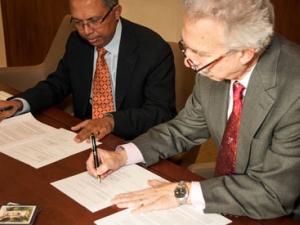

Research Bio
Lawrence Cohen is a medical and political anthropologist whose research explores the body, health, politics, and social change in South Asia. His research straddles many areas, most notably the study of old age and neuropsychiatric disorder; of sexual and gender difference and community on the economic and social margin; of alternative medicine, in particular Ayurveda; of the practice and regulation of organ transplantation and other surgeries that emerge as sites of public concern; of biometric governance and data security as sites of political and medical transformation; of the comparative study of public concern in the wake of the Covid pandemic. He is well-known for the book No Aging in India, which was the recipient of multiple awards internationally. The book examines aging, memory, and family care in India across gender and caste in the context of postcolonial transformation. Cohen is Professor of Anthropology and South & Southeast Asian Studies .
Research Expertise and Interest
social and cultural anthropology, medical anthropology, critical gerontology, feminist and queer theory, Science and Technology studies
In the News
Bangladesh takes center stage with Subir and Malini Chowdhury Center
Bangladesh may be known mostly for its poverty, environmental vulnerability and deadly factory fires, but the new Subir and Malini Chowdhury Center for Bangladesh Studies at the University of California, Berkeley, is ready to prove that this South Asian country of over 160 million people has a lot more to teach the rest of the world.

